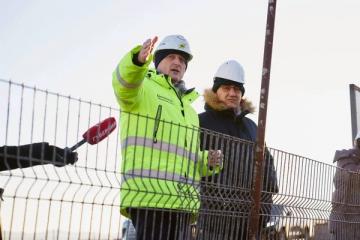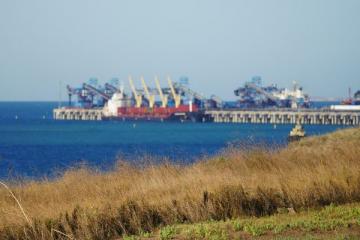
As a member of the European Clean Trucking Alliance (ECTA) since its creation in July 2020, GEODIS supports its calls for accelerated infrastructure development within the EU countries and the strengthening of CO2 emission standards for road transport, within the context of its adoption of the "Fit for 55" package.
The European Clean Trucking Alliance, coalition calling for the decarbonisation of road freight in the EU urges the European Commission to grab the opportunity of the upcoming proposals under the ‘Fit-for-55 Package’ and come up with an ambitious policy framework to make zero emission freight a reality.
The Alliance position paper comes ahead of the Fit for 55 Package which will shape several decisive regulations for the future of road transport: the expected review of Europe’s Alternative Fuels Infrastructure Directive (AFID), the TEN-T and TEN-E regulations, the Energy Taxation Directive and CO2 emission performance standards for light commercial vehicles.
Ramping up the infrastructure
There are approximately 40 million vehicles delivering more than three-quarters of goods in Europe.
“The availability of infrastructure for zero-emission vehicles is one of the biggest challenges to decarbonising our fleets - only ambitious regulations with AFID and policy support can turn this into the greatest opportunity of the decade” said Kristin Kahl, the Alliance’s spokesperson.
The Alliance calls on the Commission to establish binding targets in the AFID legislation for infrastructure in all EU member states. A minimum of 2 public charging stations per freight urban node by 2025 – to be increased to a minimum of 10 charging stations by 2030 - are needed to make the transition to zero-emission trucks a reality in every member state.
The TEN-T core network corridors should become zero-emission freight corridors, with sufficient charging and green hydrogen refueling infrastructure deployed at the latest by 2027 and completed by 2030 to enable zero-emission long haul trips.
Ensuring the production of zero emission vehicles
In Europe, transport is the biggest source of emissions (around 28%). It is the sector with the highest emissions increase since 1990.
To stay on course for zero emissions by 2050, the upcoming CO2 performance standards revision is the opportunity to strengthen the standards in order to boost supply of zero-emission vehicles. The Alliance recommends having at least 50% of new vans sold in 2030 zero-emission and by 2035 all new vans sold to be zero-emission.
This is an opportunity to make almost CO2-free city logistics in major urban centres by 2030.
"The transport and logistics sector must play an integral part in the realization of this ecological transition. Transport, both of goods and passengers, accounts for more than 25% of global CO2 emissions. We must face this reality. During this crisis, we have seen an acceleration in the awareness of our customers to this need. We are looking forward to the arrival of new zero-emission vehicles on the market, as well as the deployment of improved energy infrastructures, which will be essential to ensure this transition," says Philippe de Carné, Executive Vice President Business Development, Innovation & Business Excellence of GEODIS.





